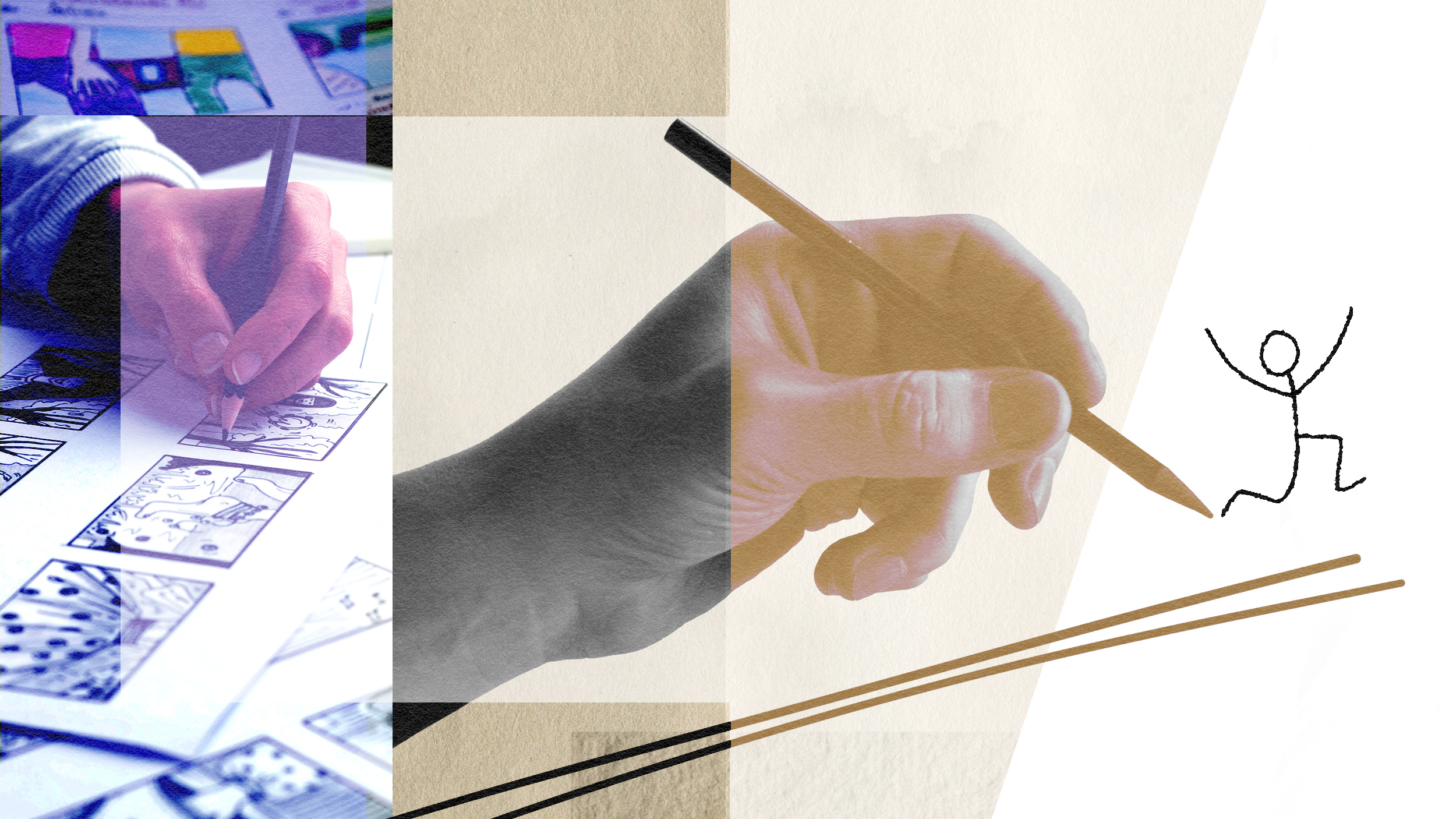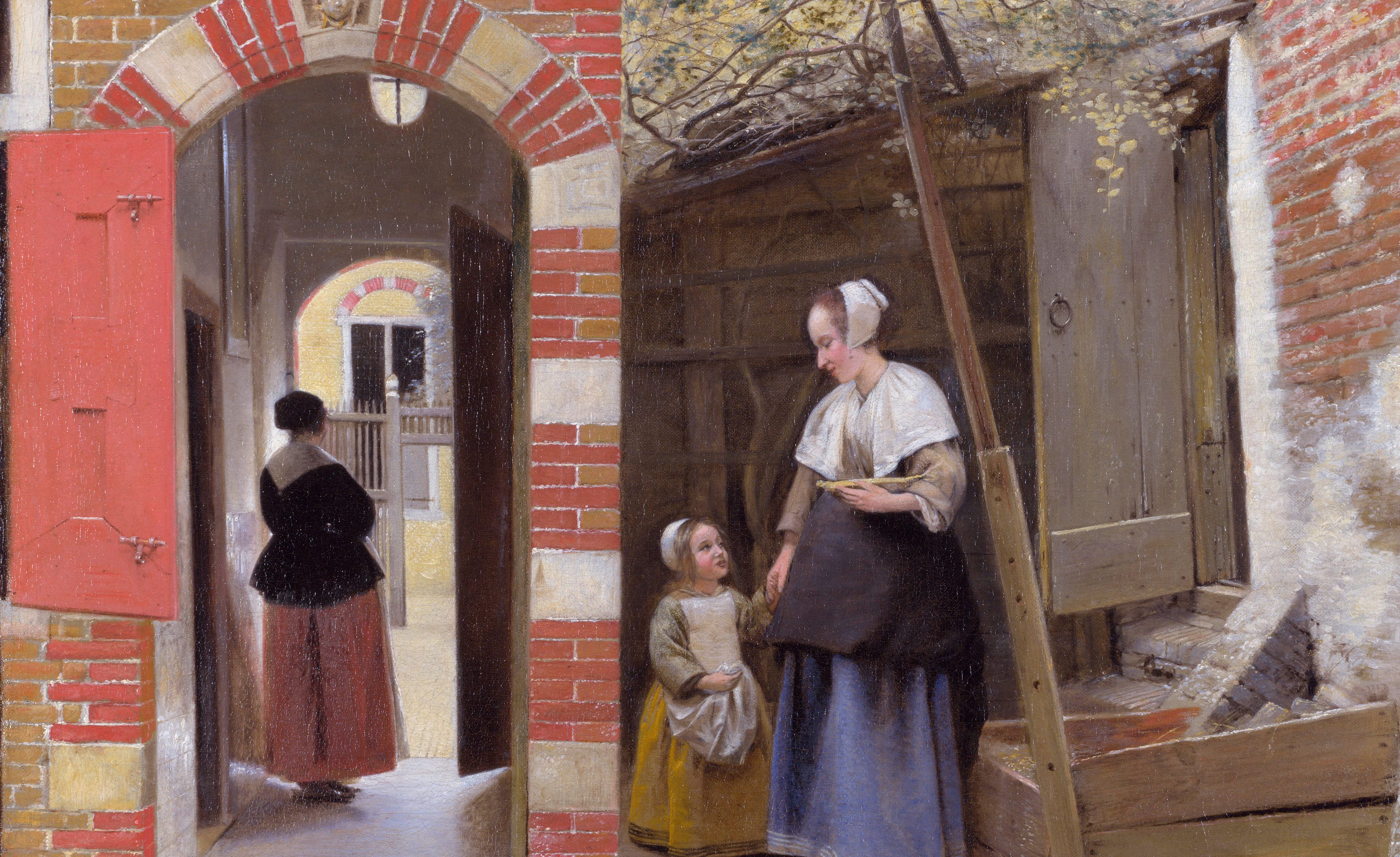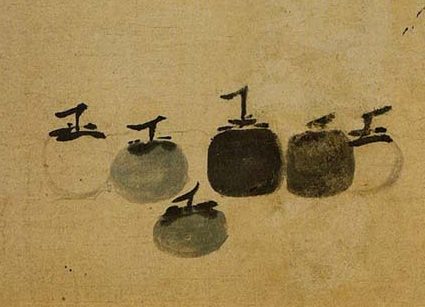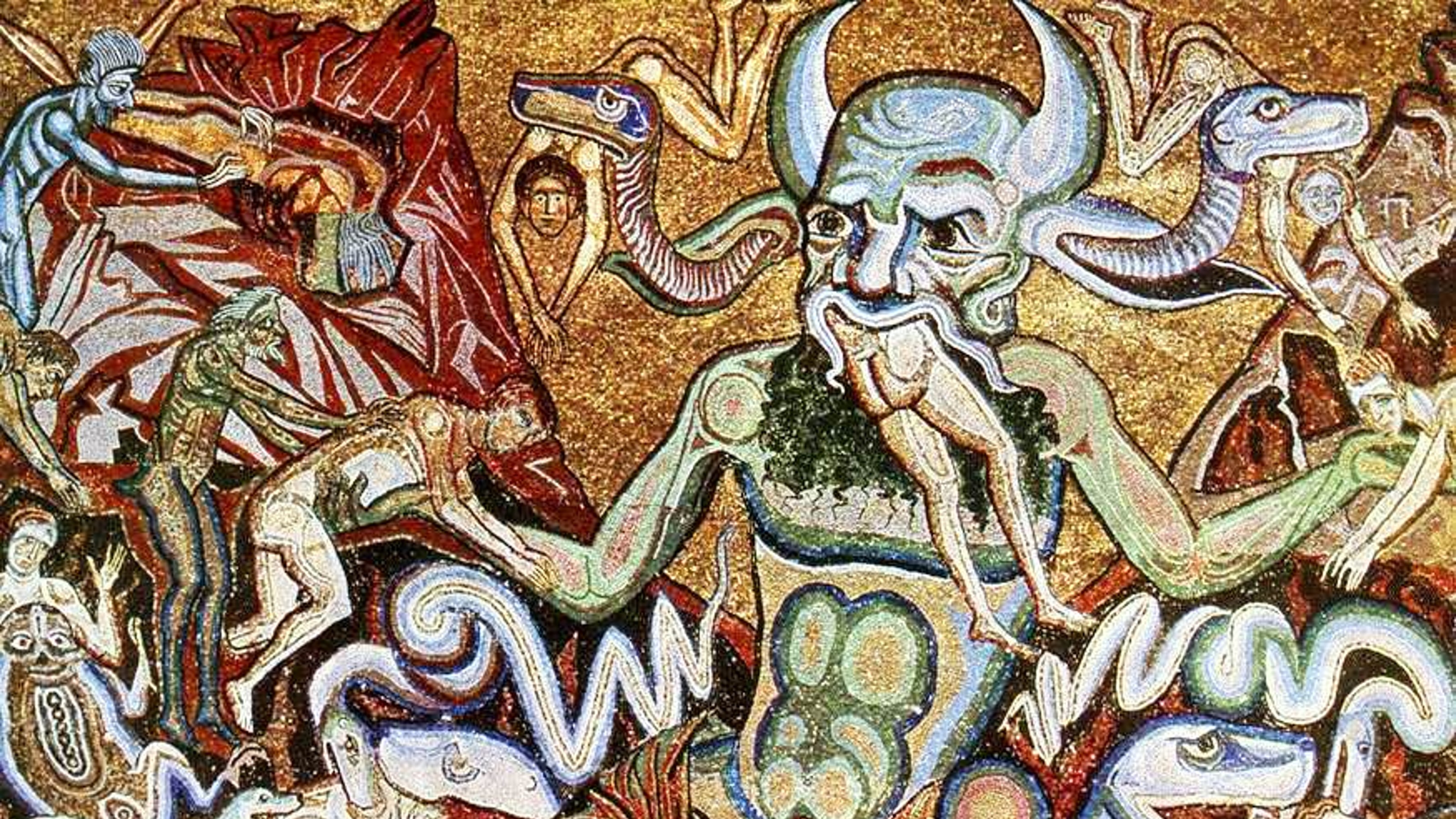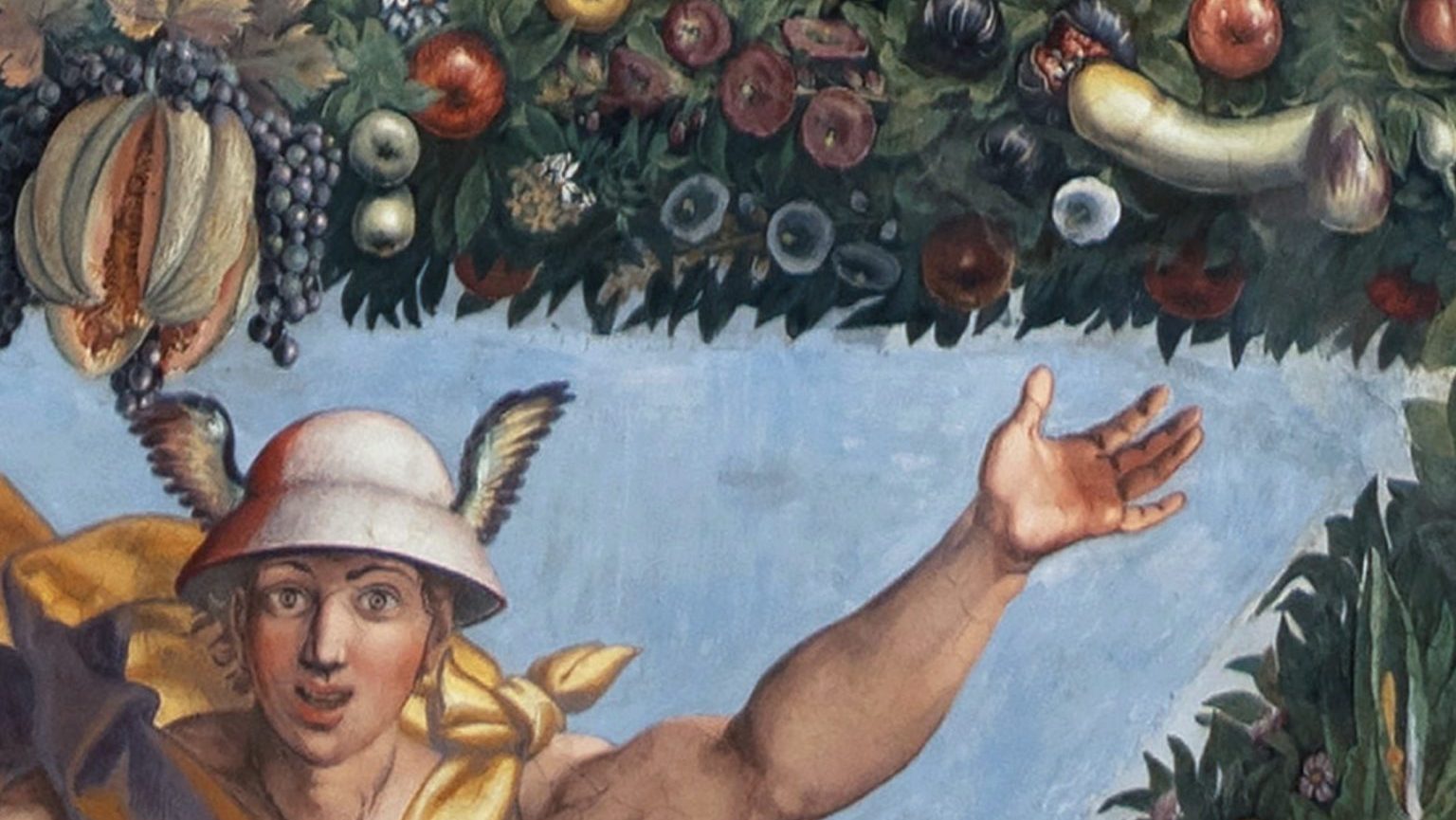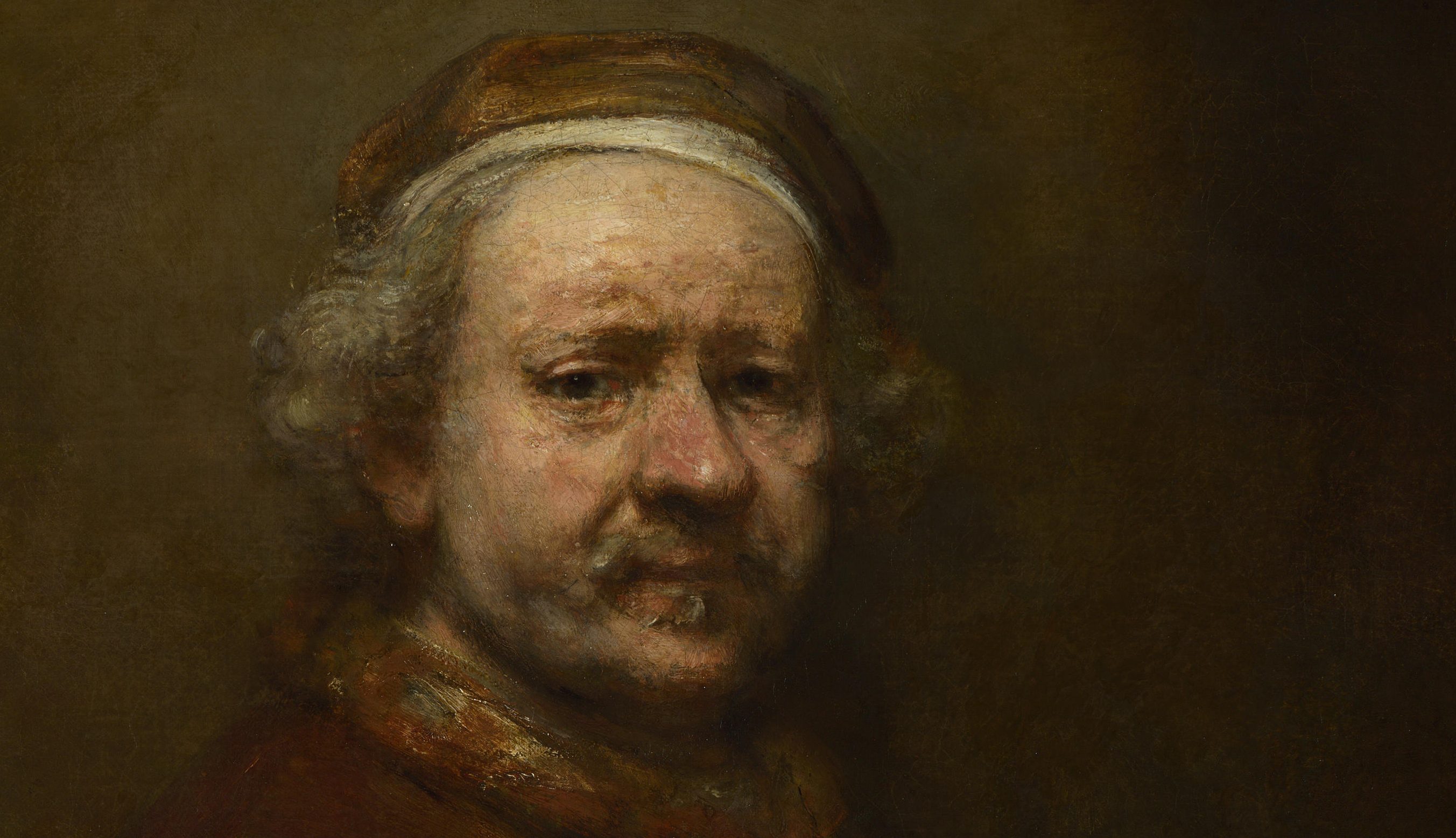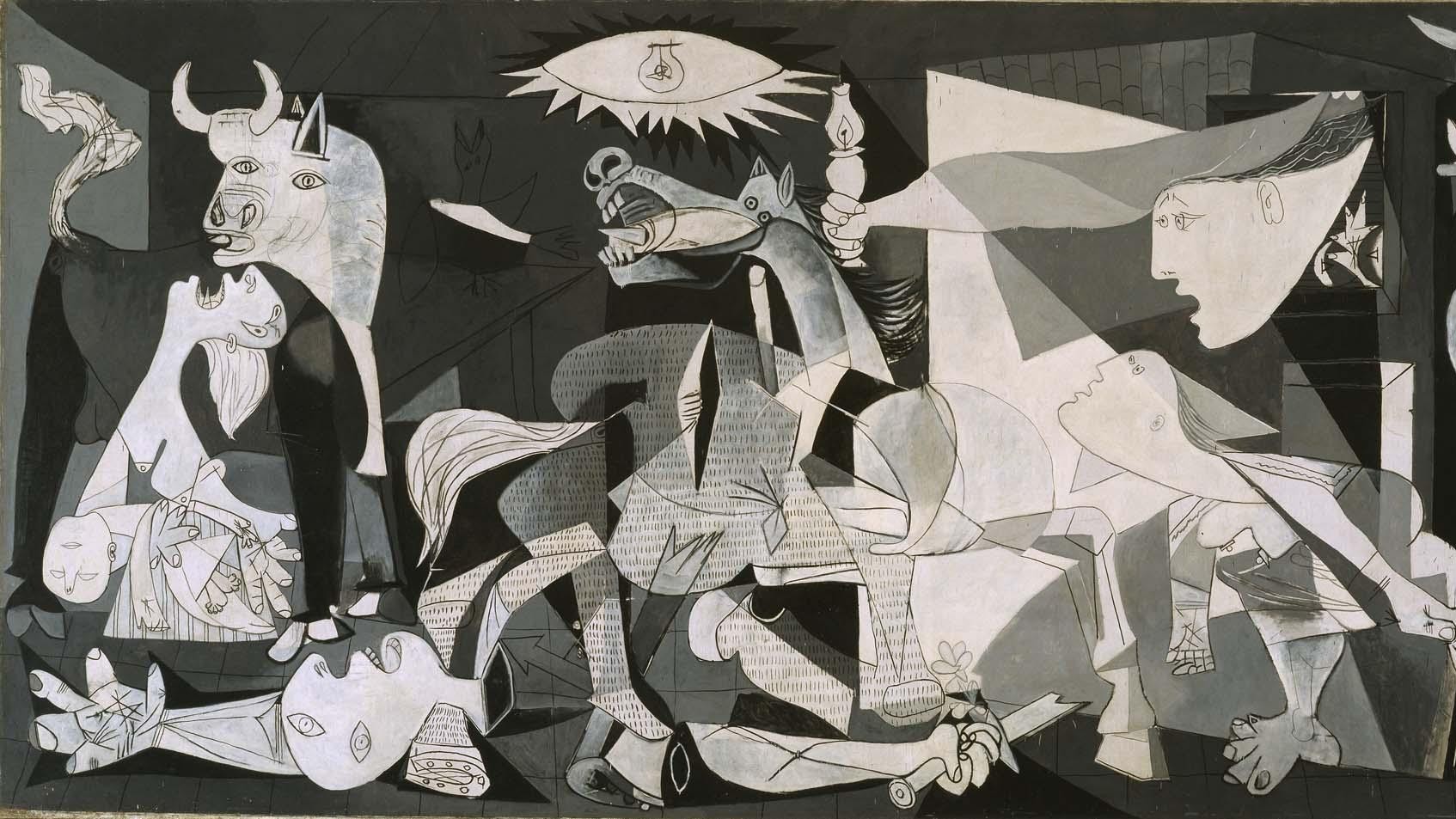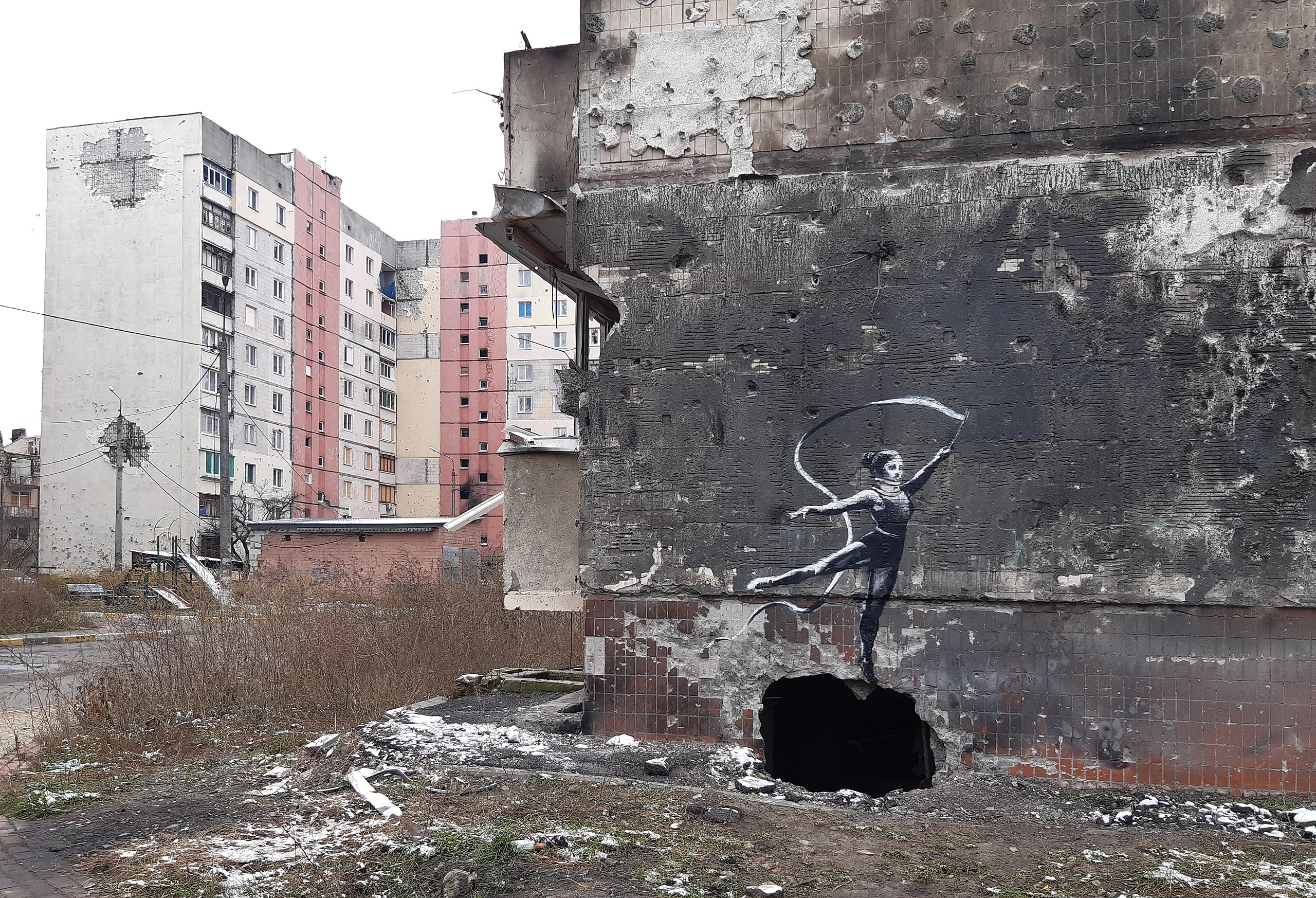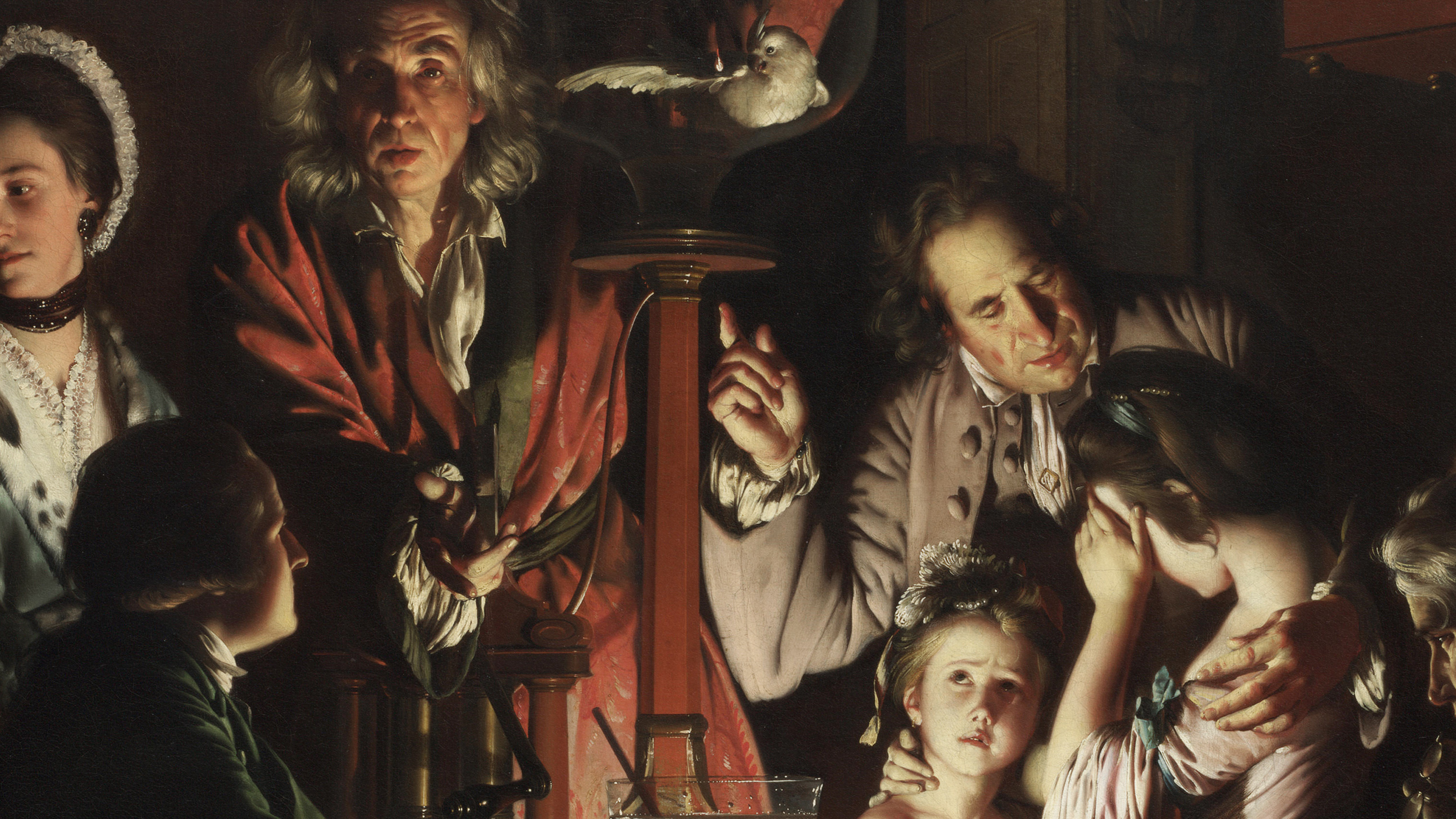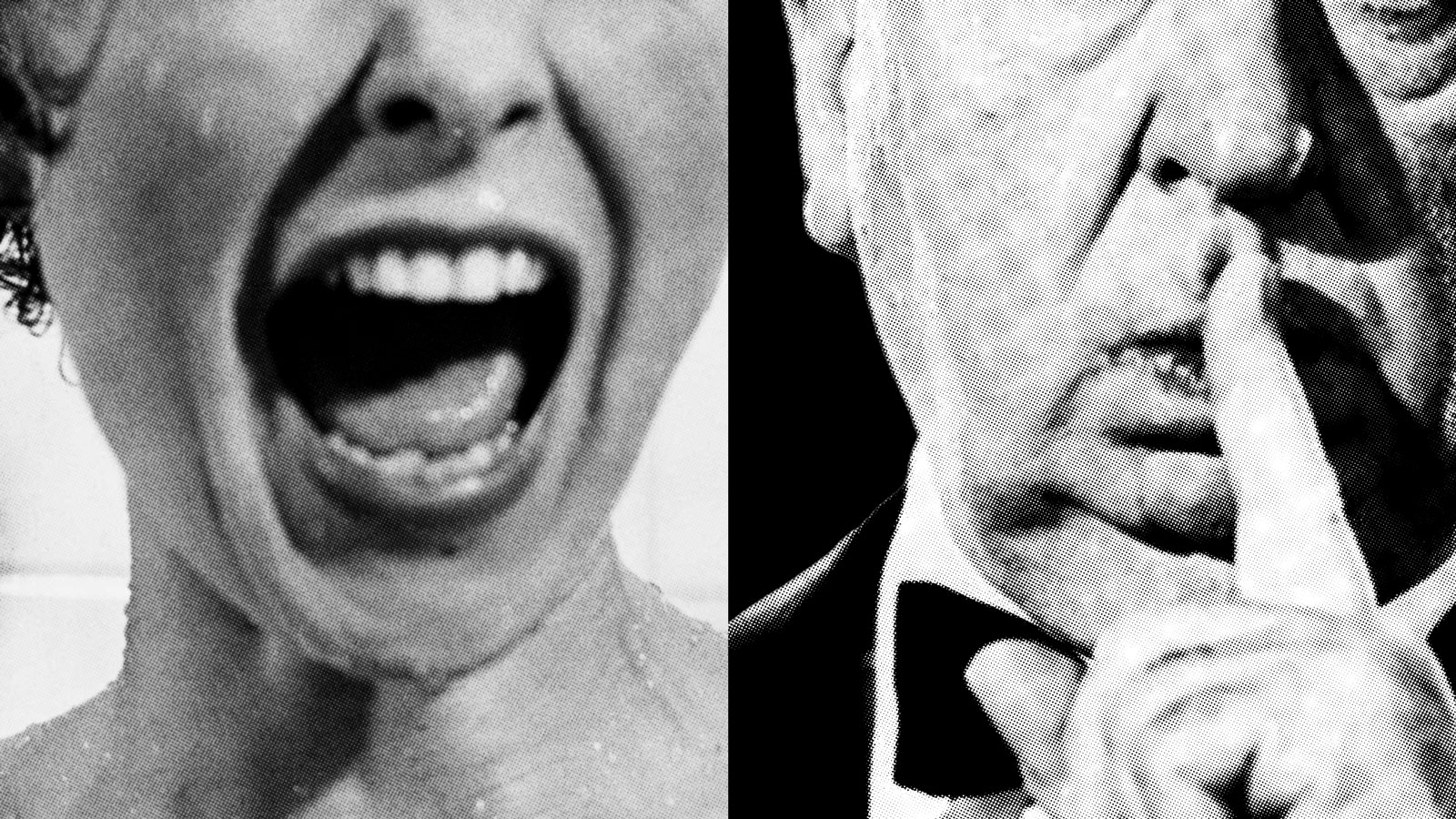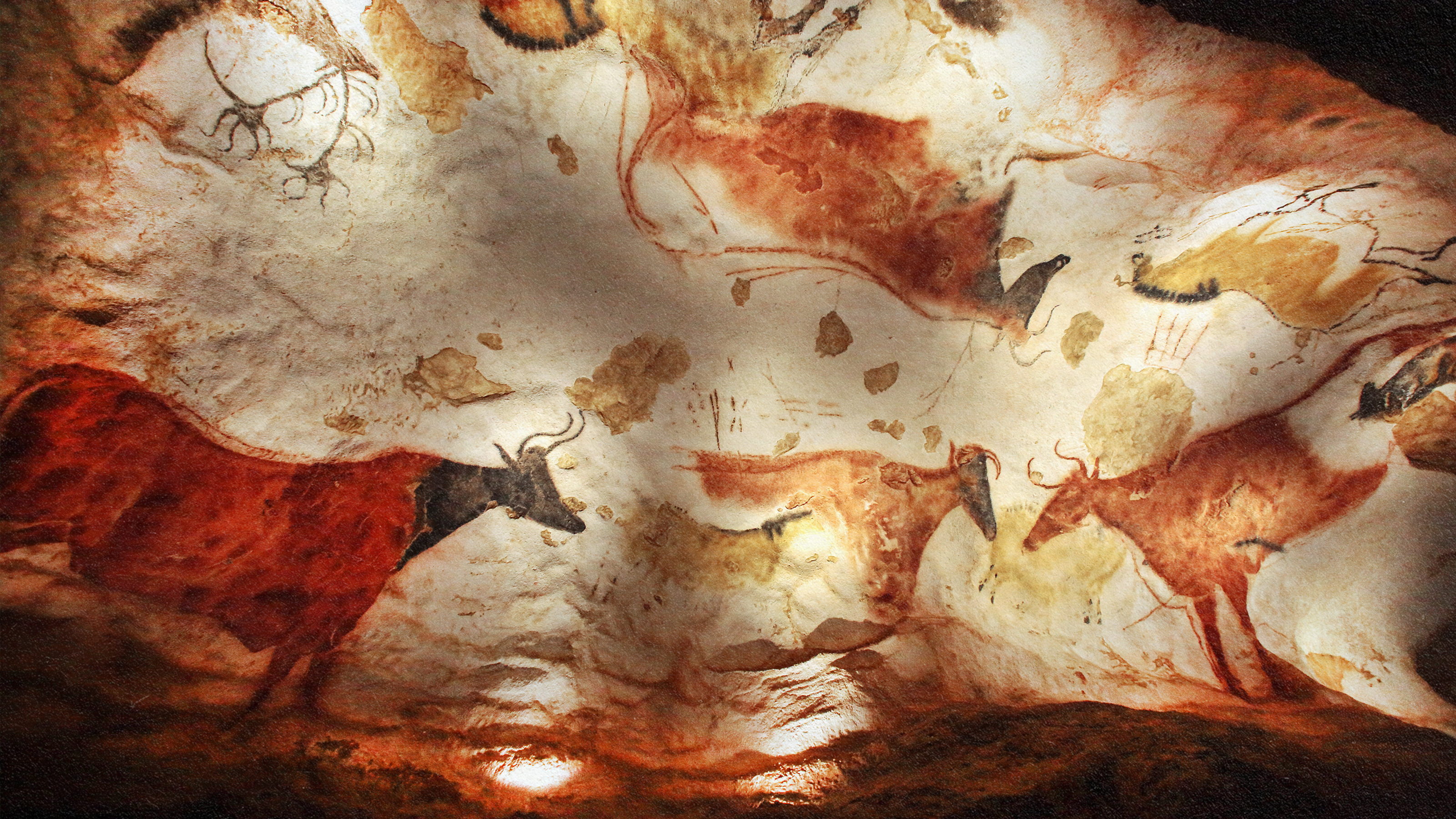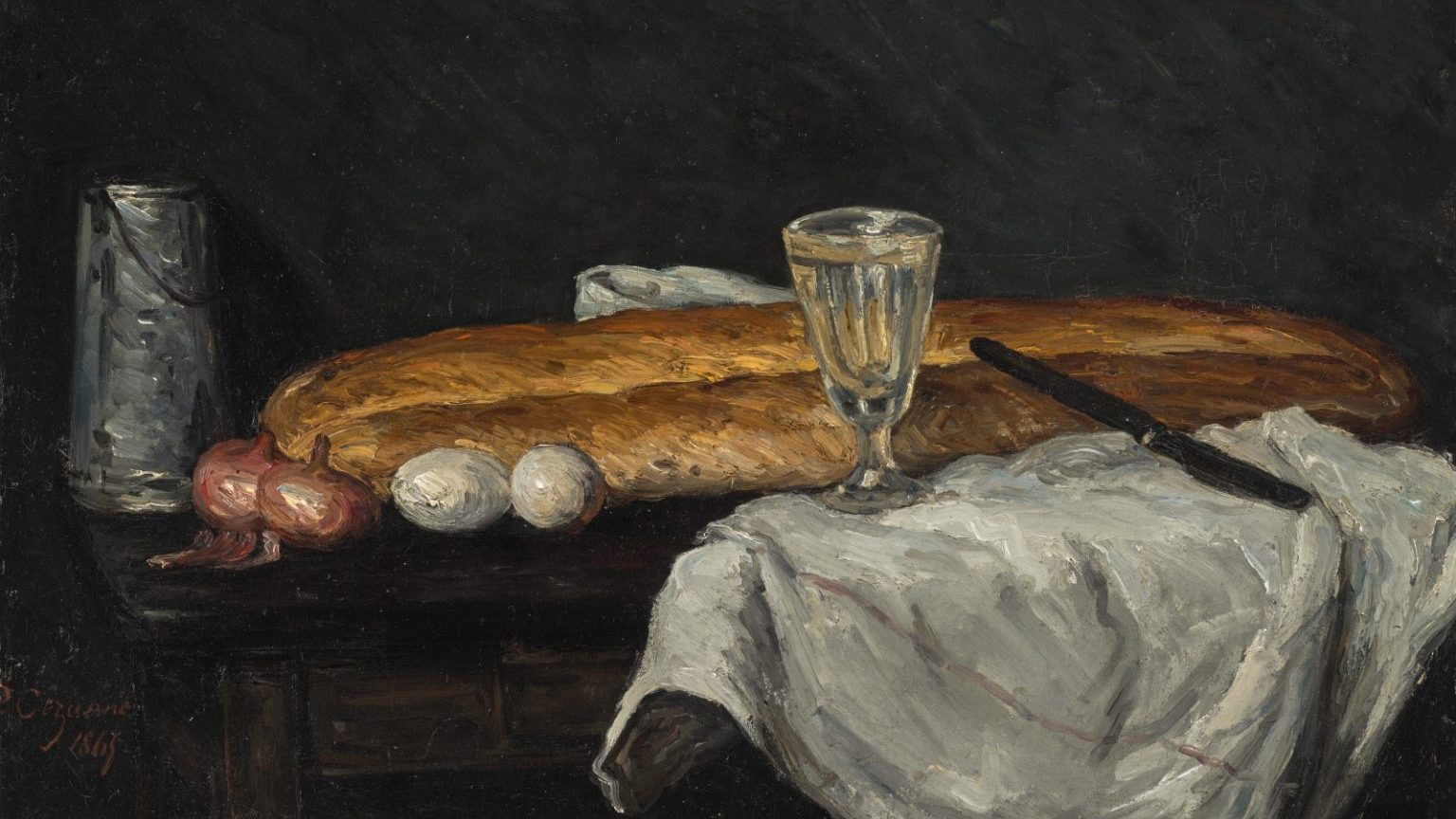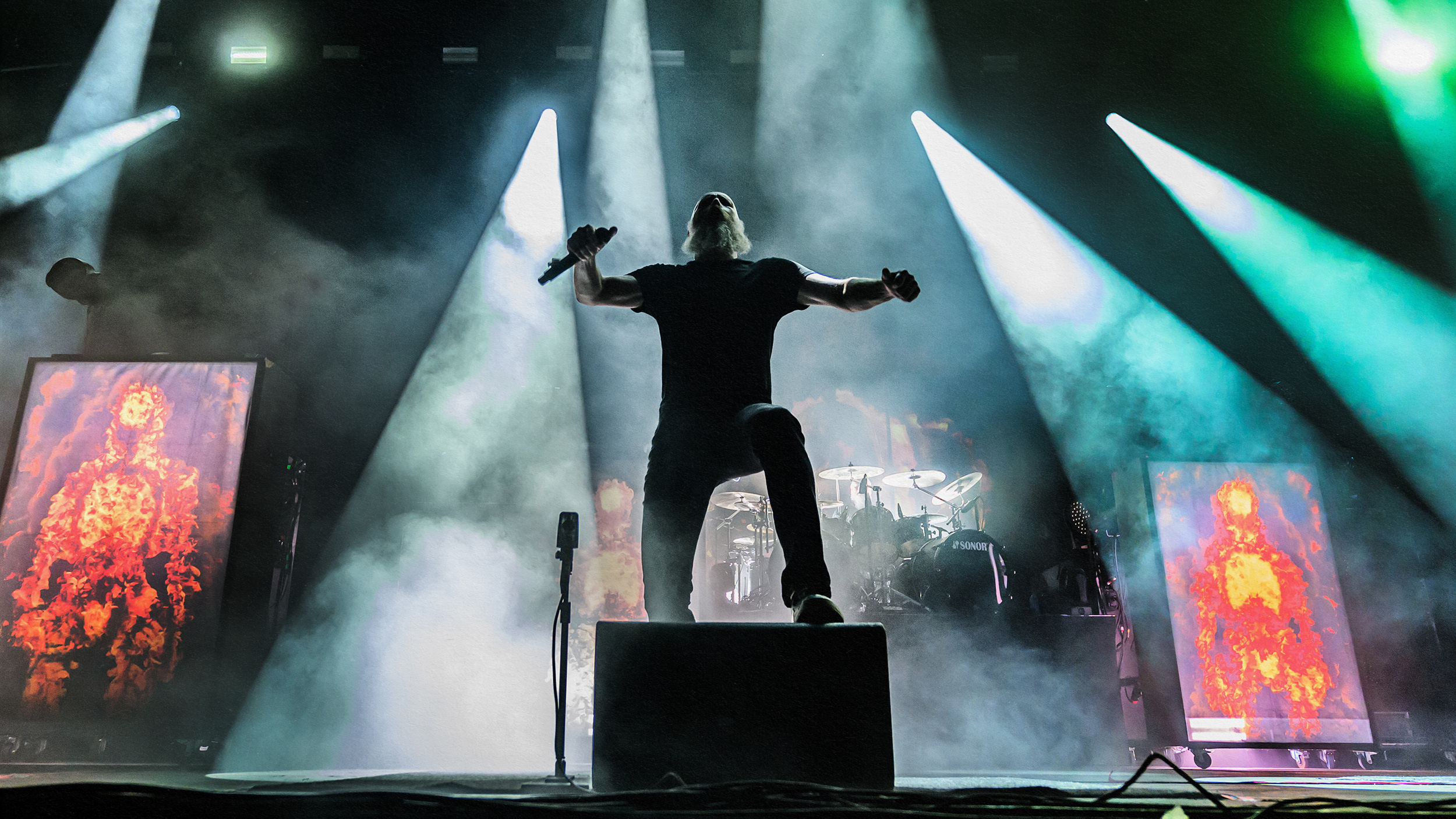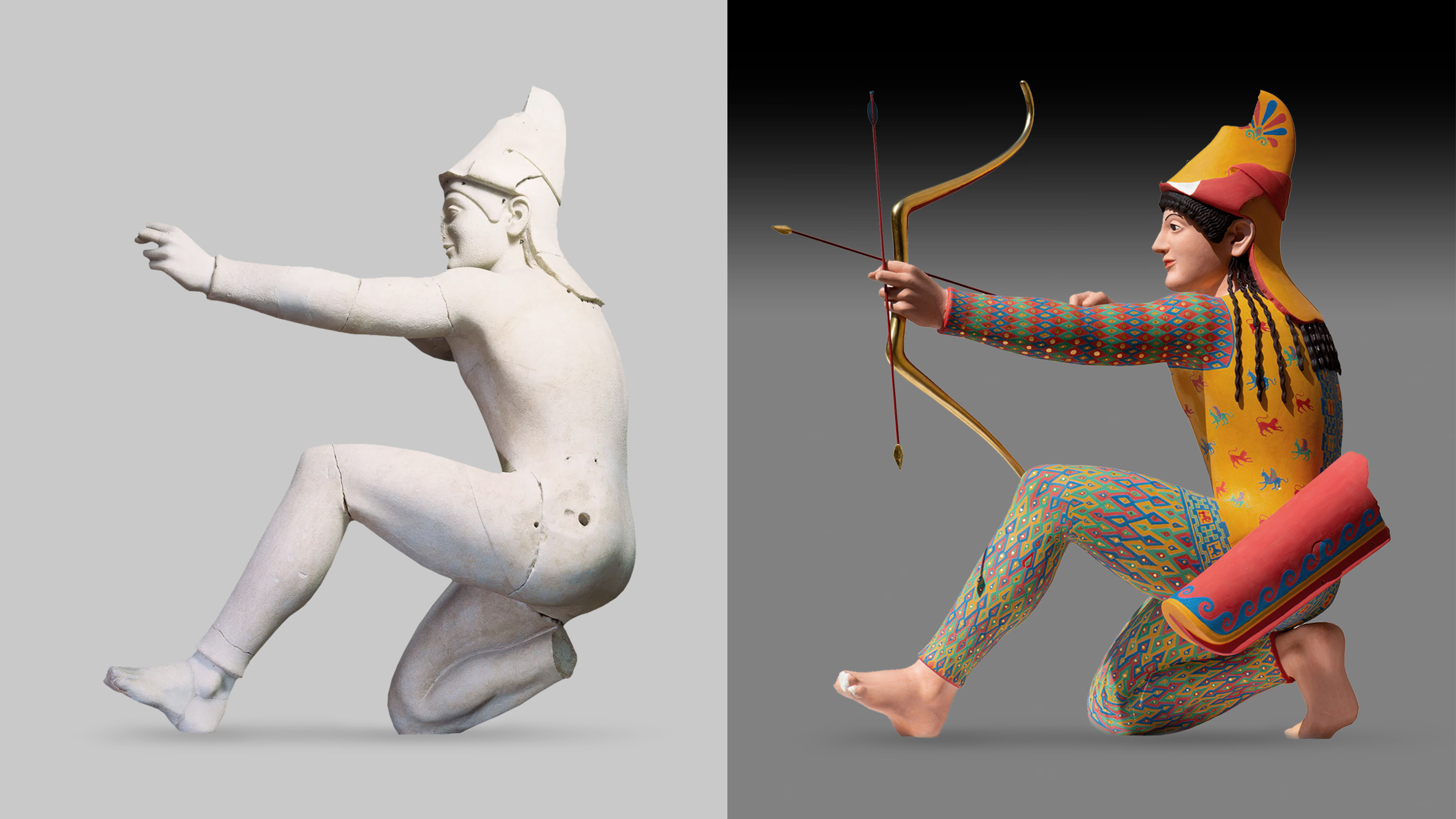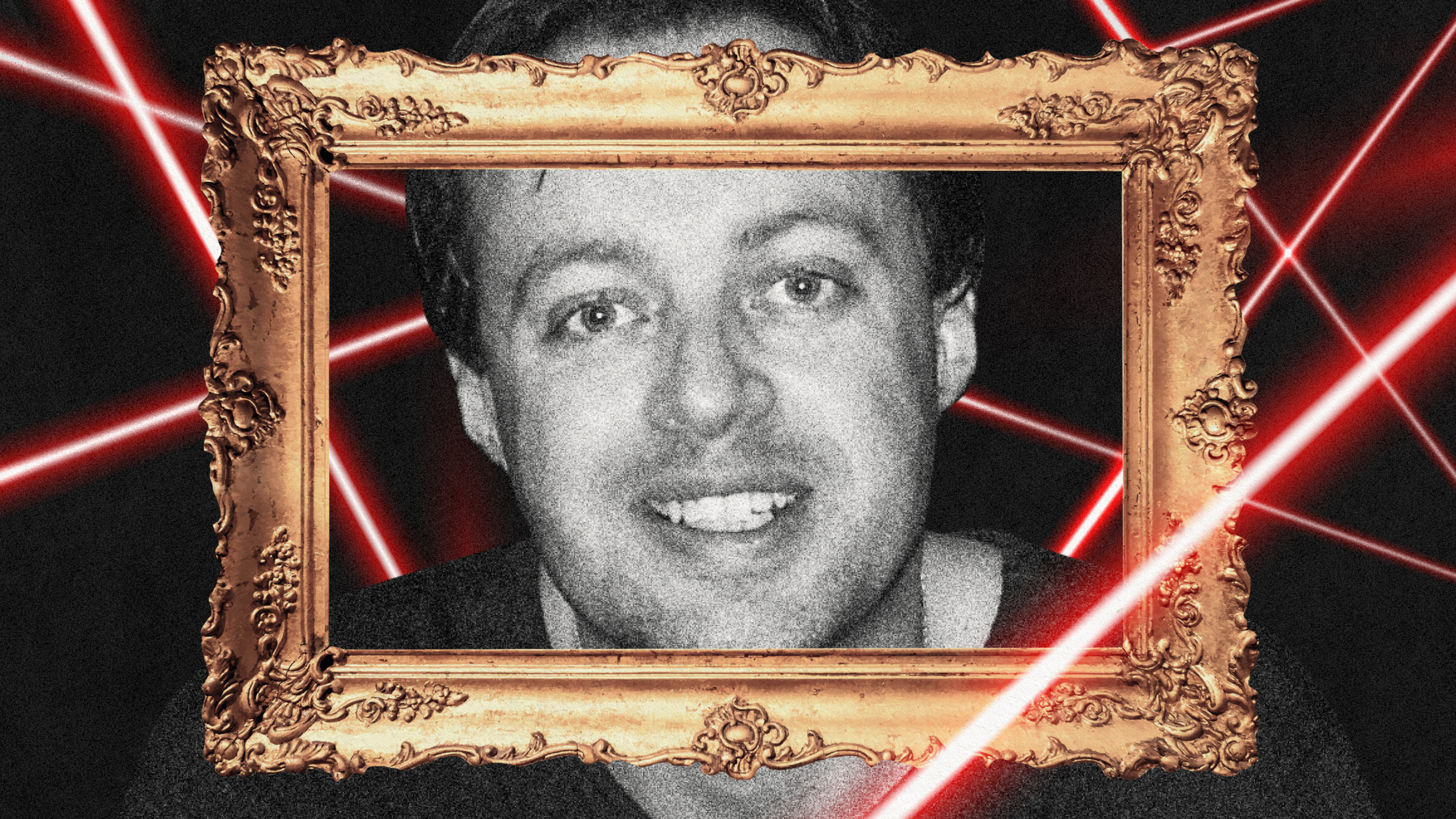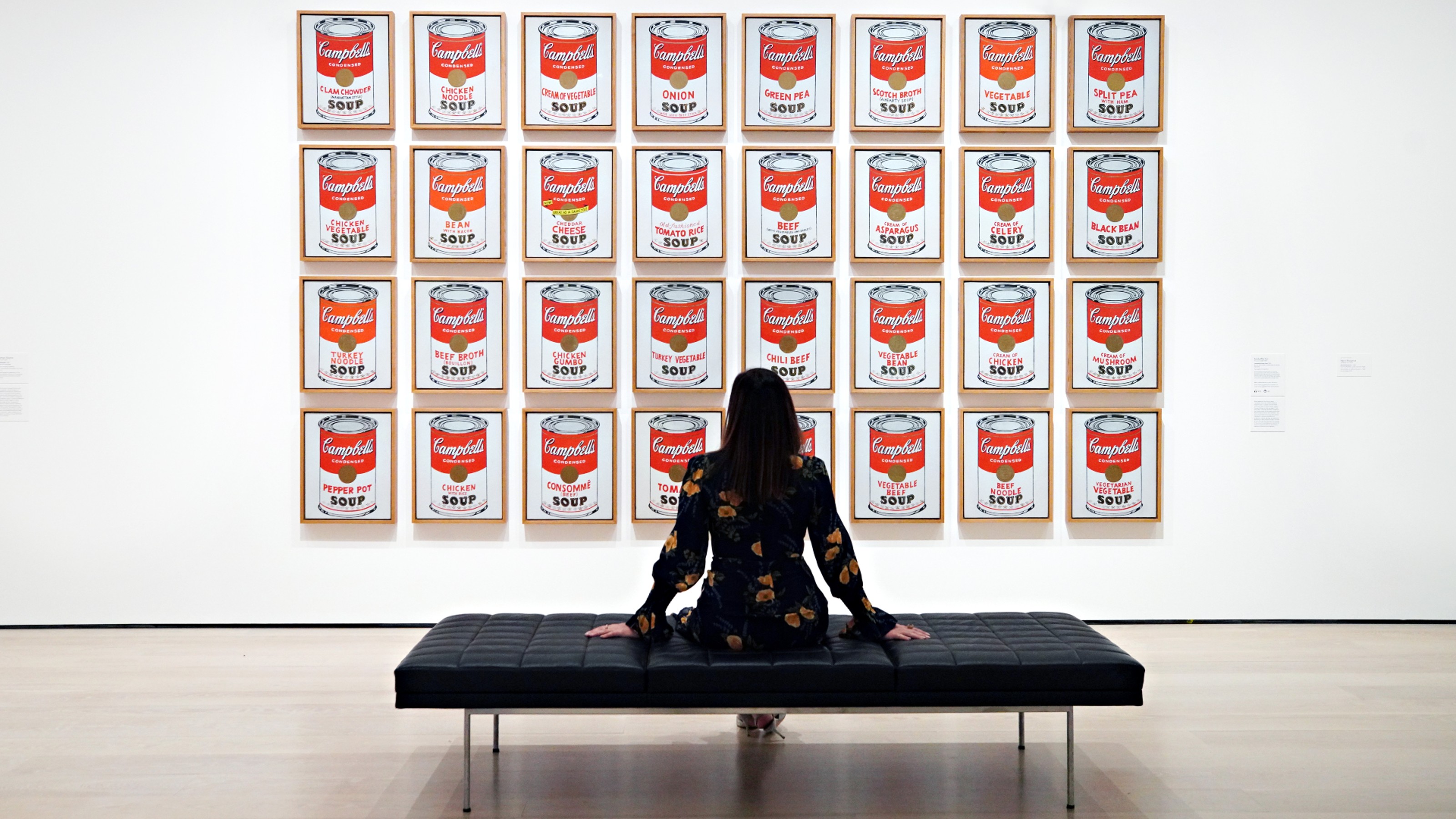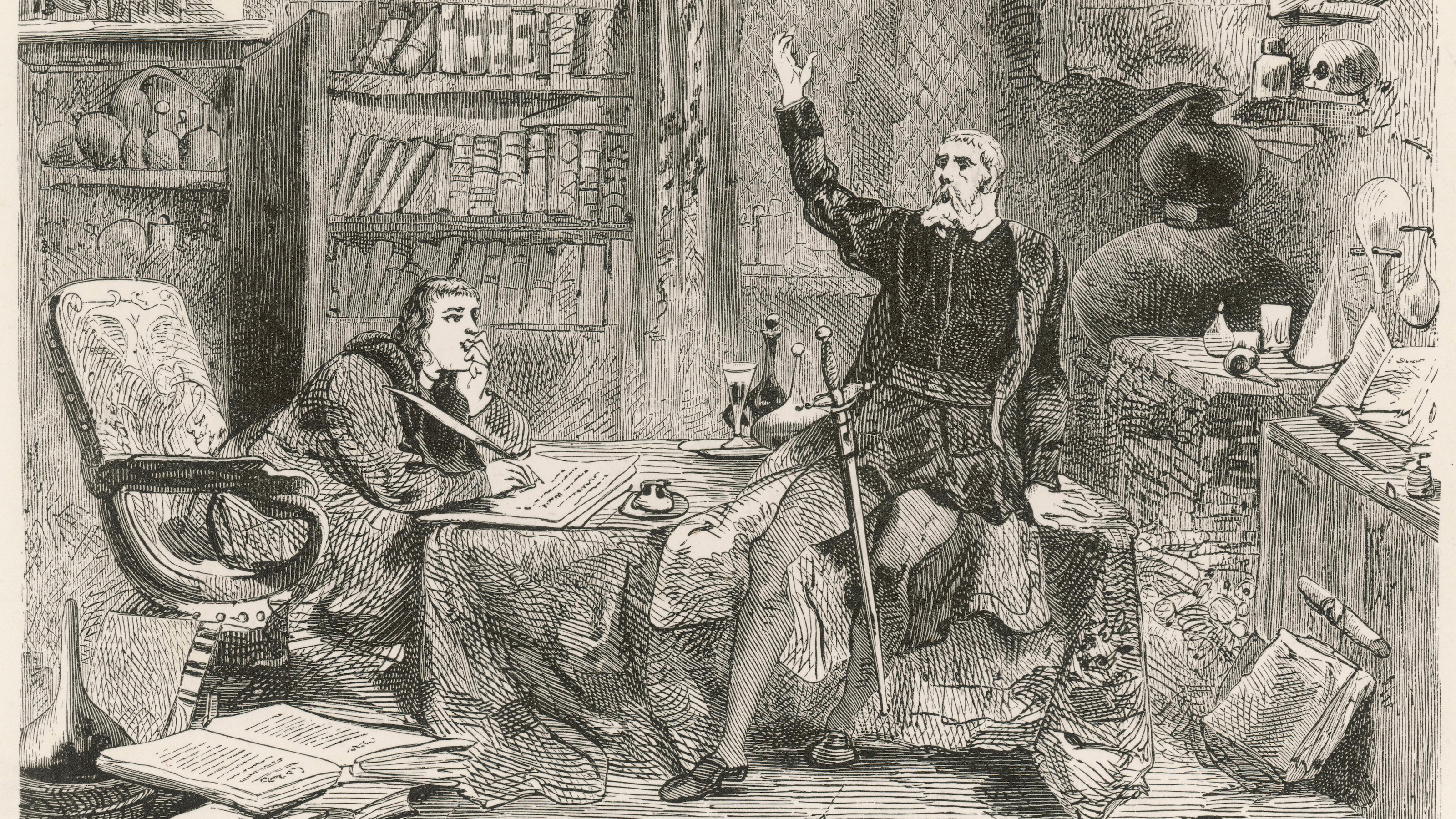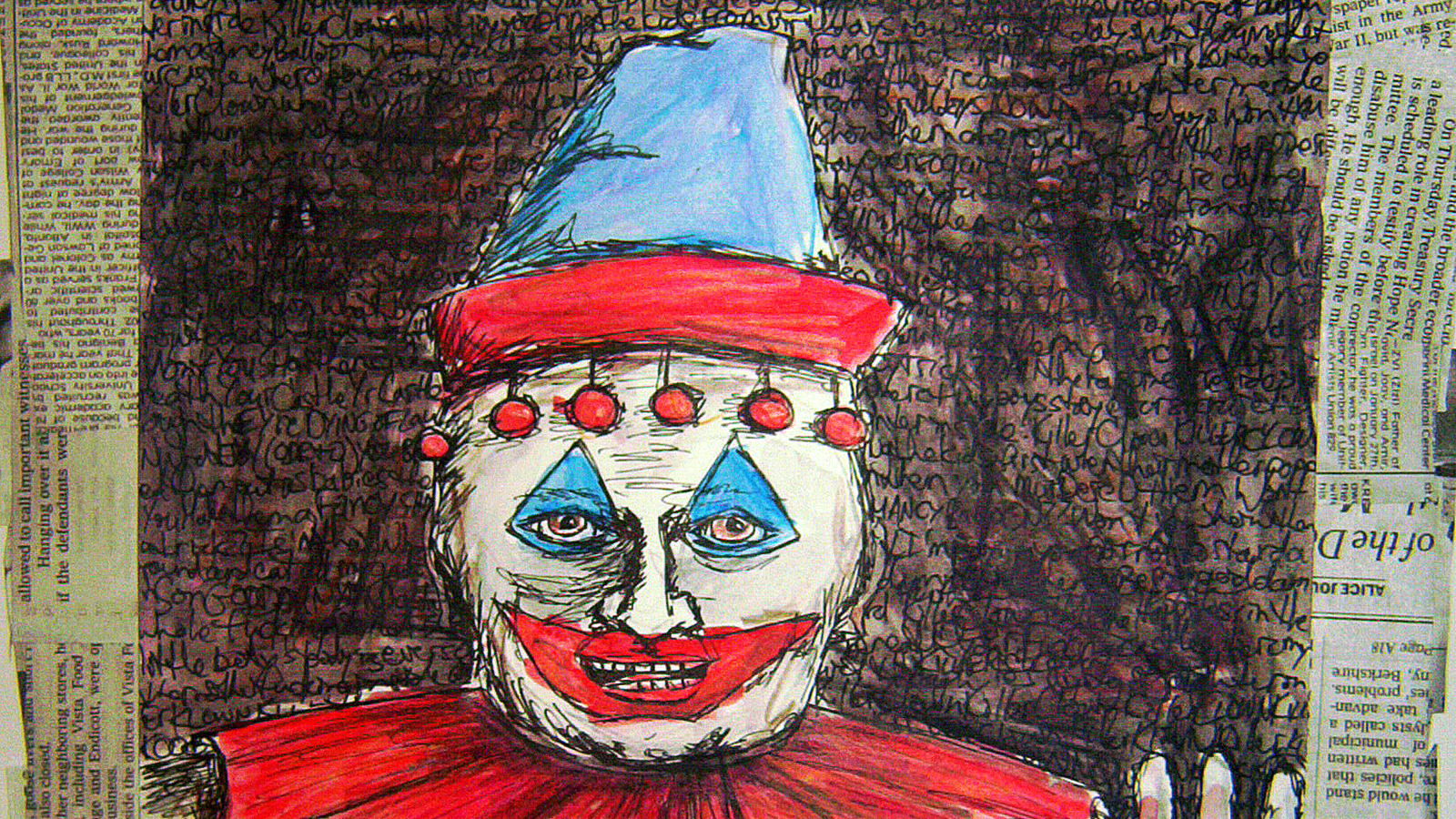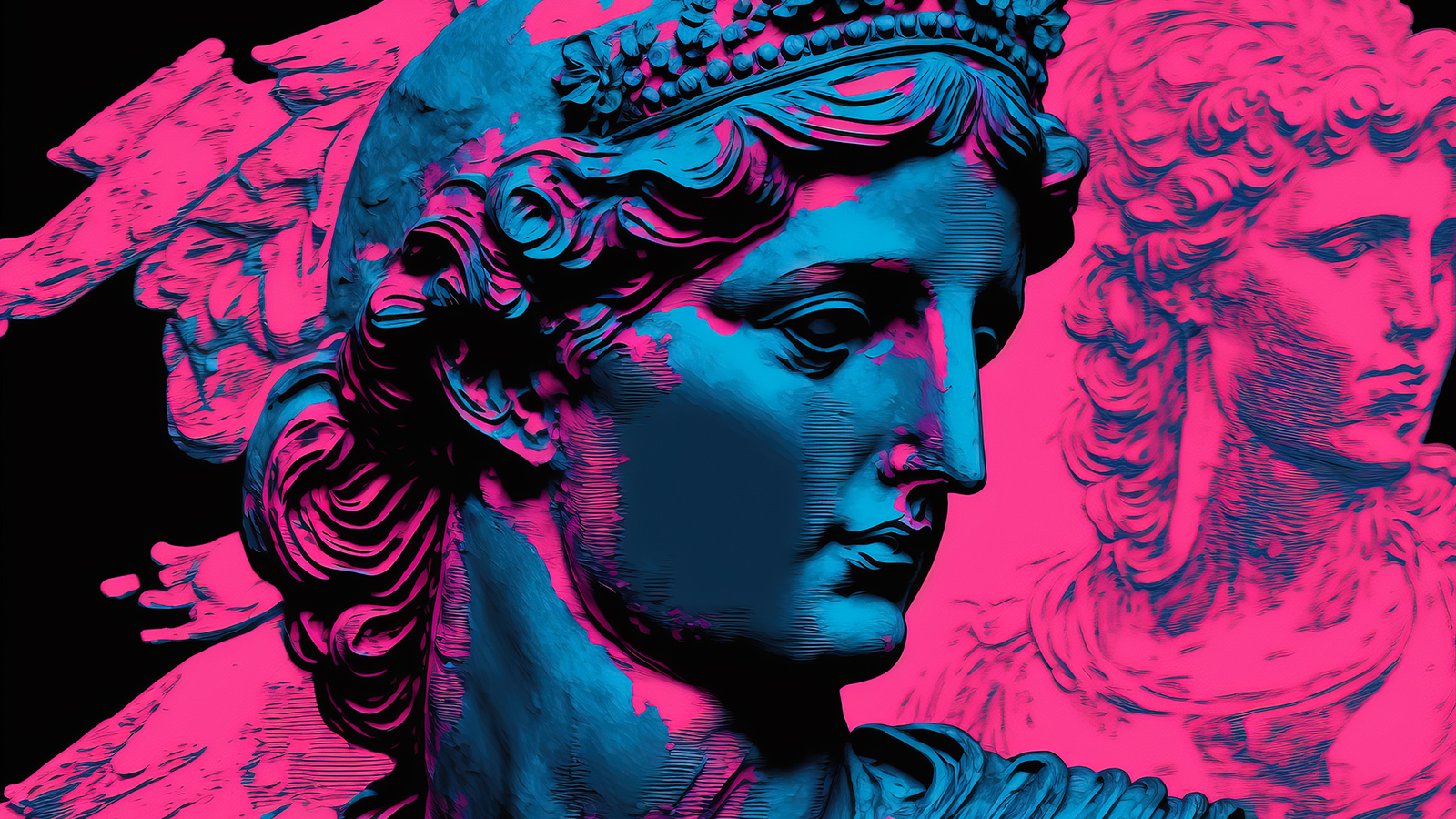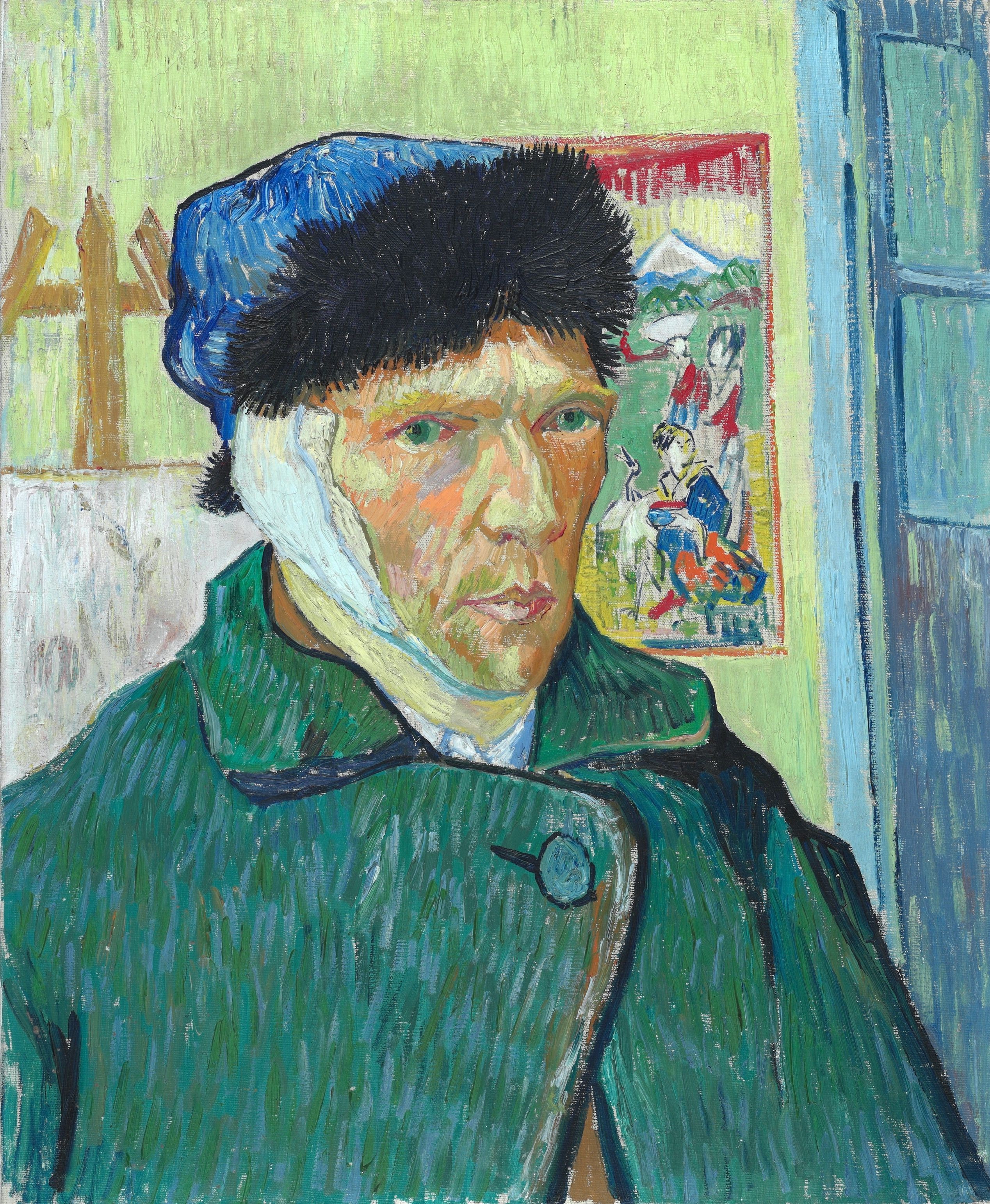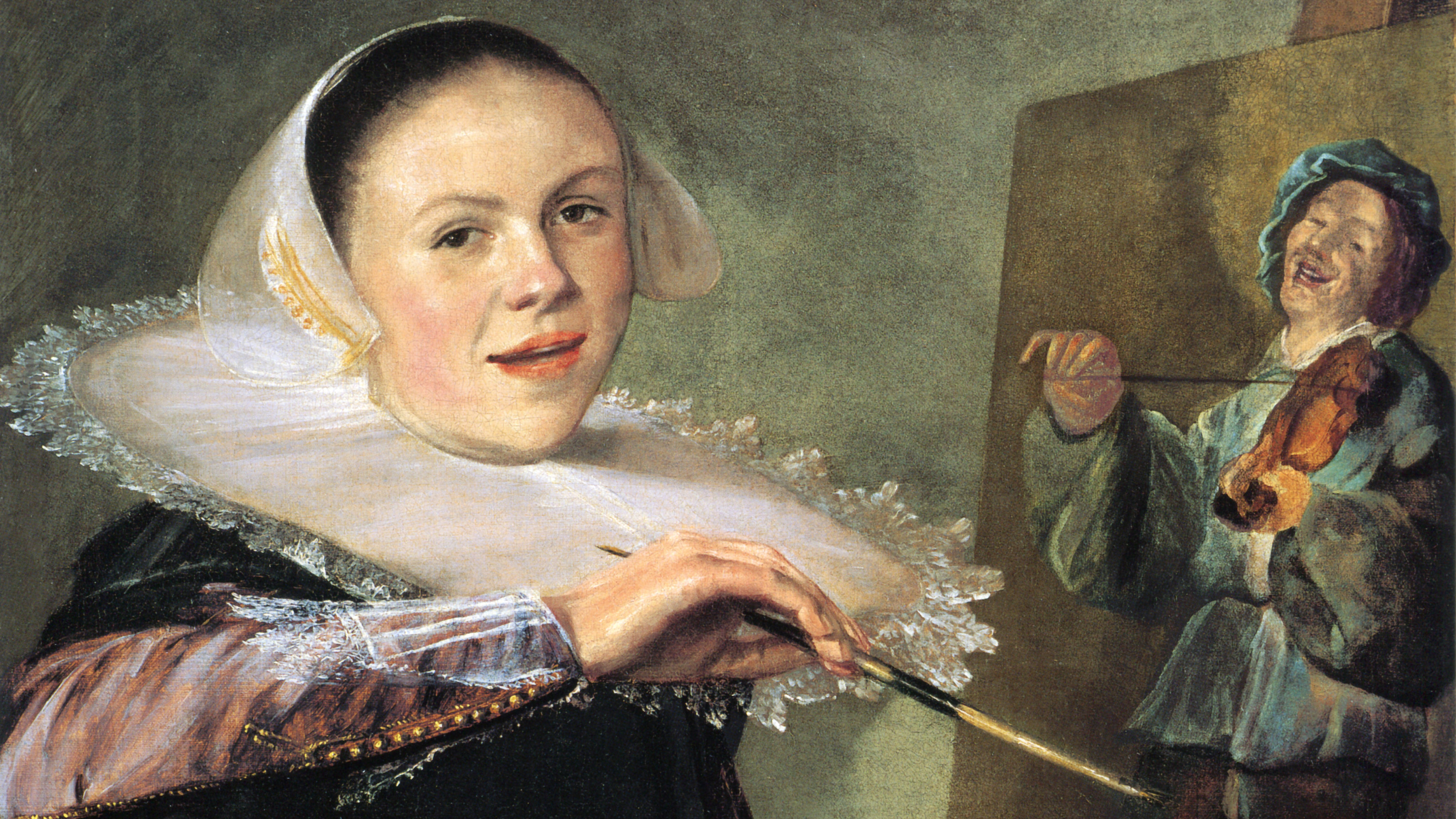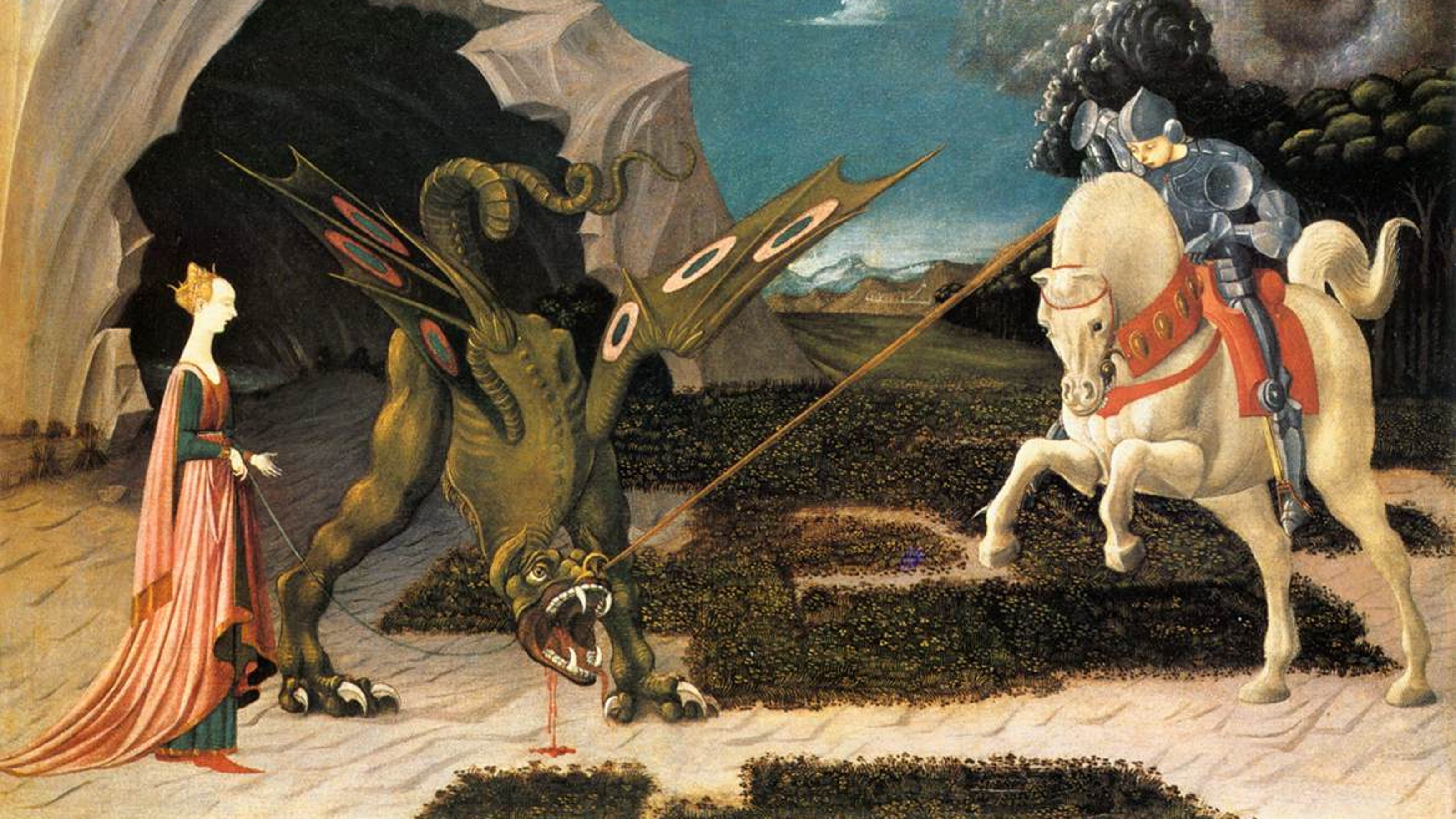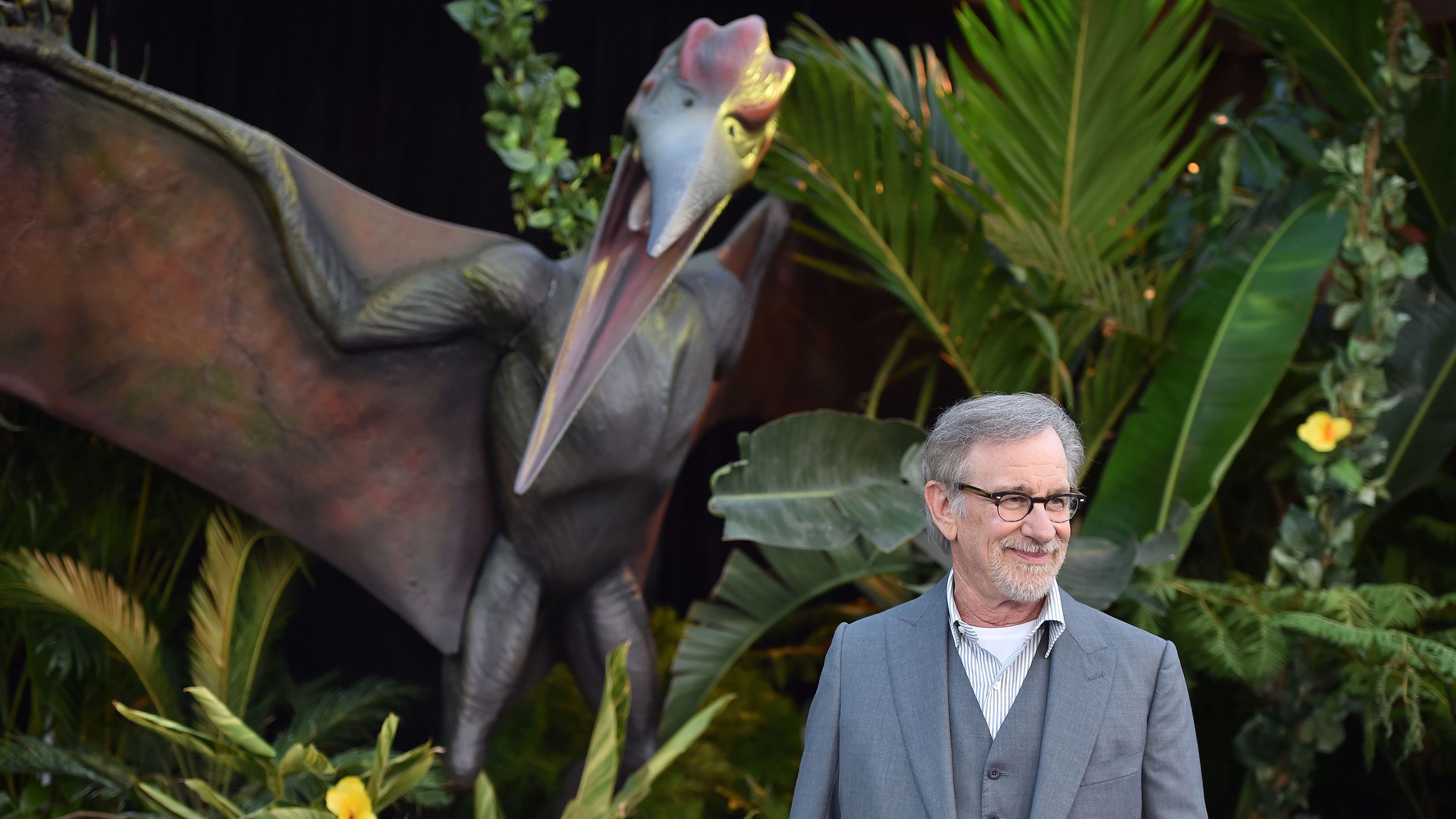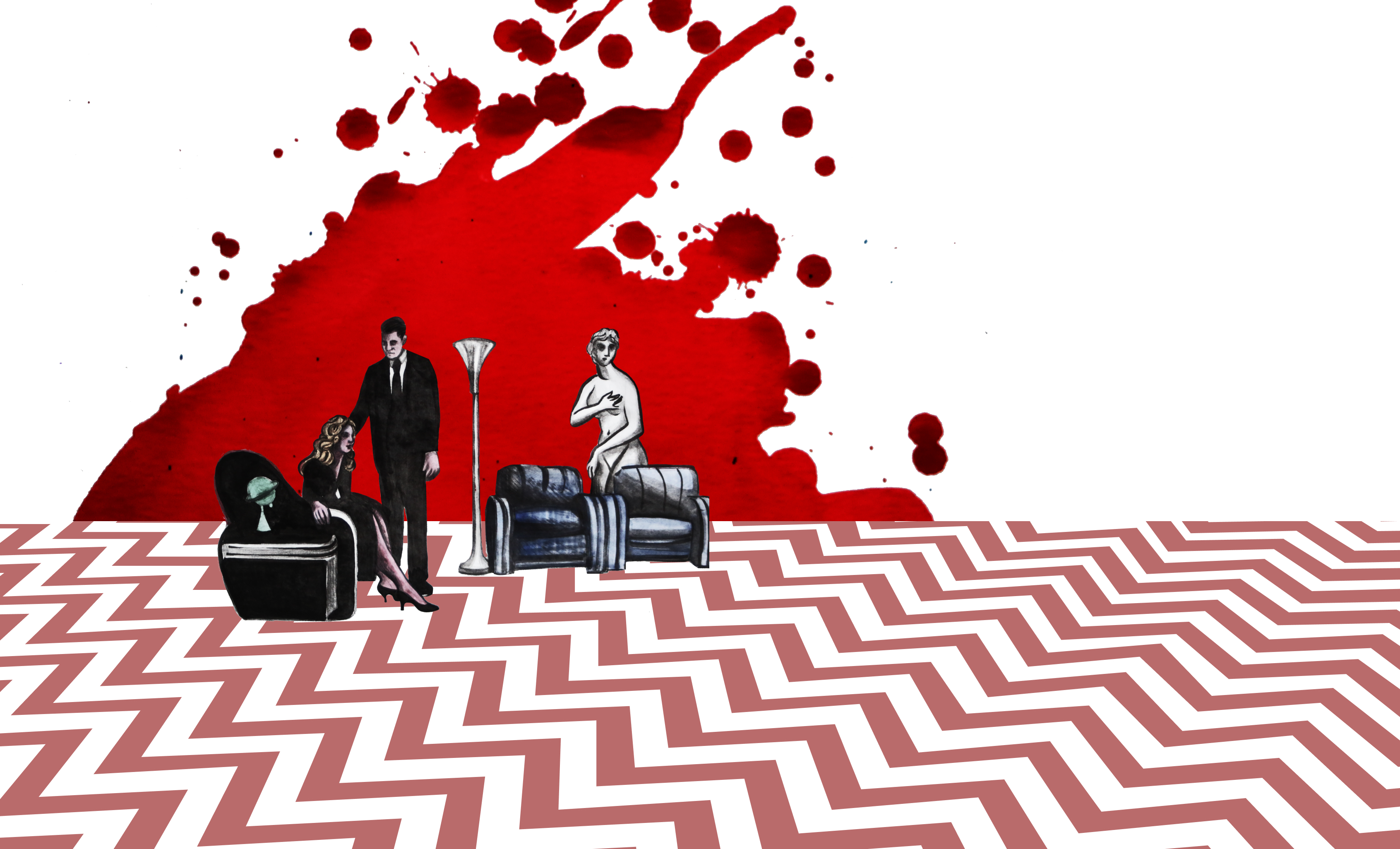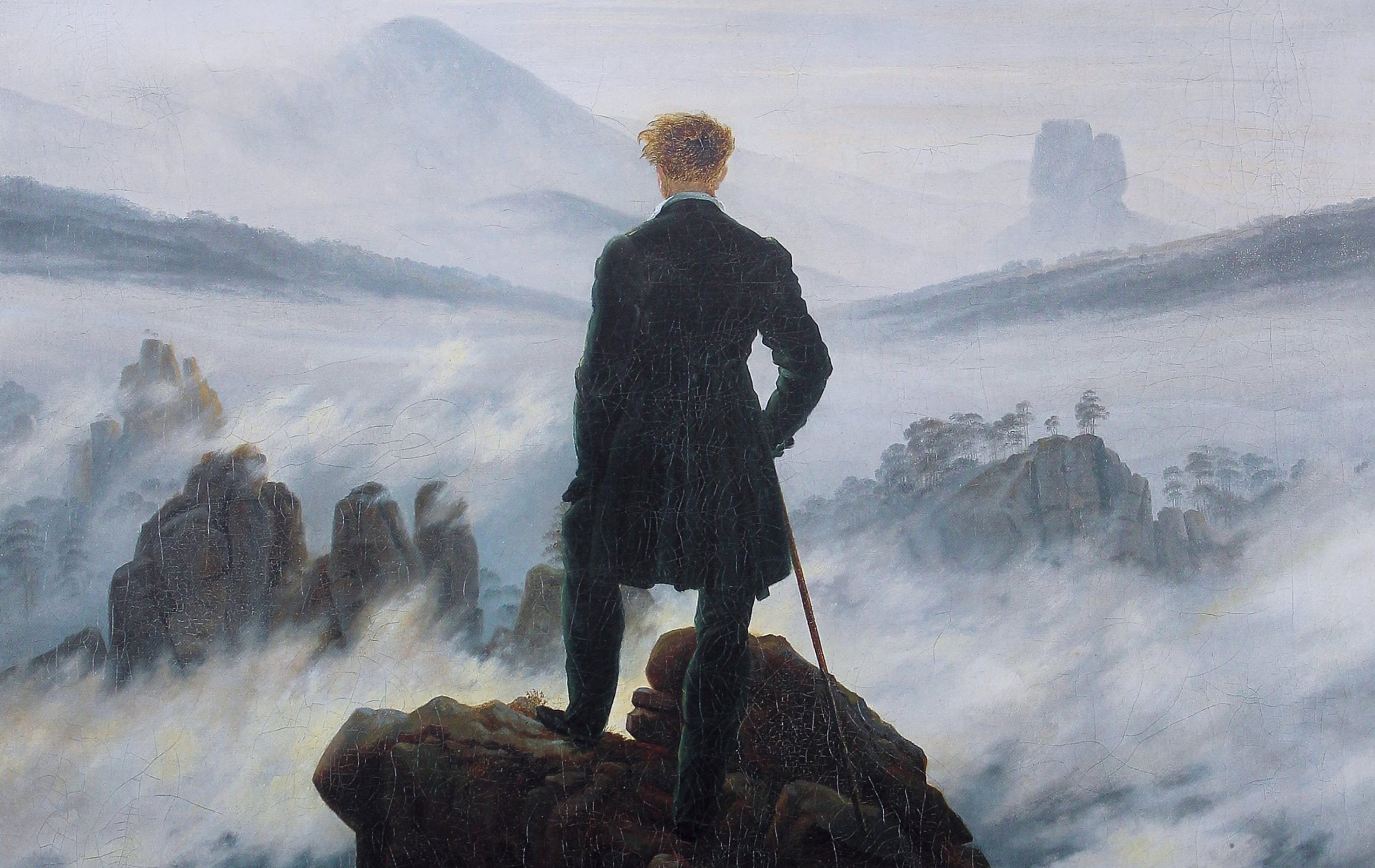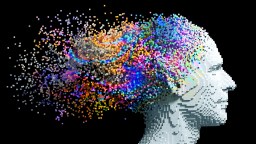art
Big Think spoke with animator and animation historian Tom Sito about the cyclical evolution of animation.
Cognitive psychologist and poet Keith Holyoak explores whether artificial intelligence could ever achieve poetic authenticity.
You’ve certainly seen the paintings — but they don’t depict what you think they do. Benjamin Moser discusses with Big Think.
‘Six Persimmons,’ an ink painting by the Chinese monk Mu Qi, has long been hailed as the poster child of Zen Buddhism. But is its reputation deserved?
The history of hell doesn’t begin with the Old Testament. Instead, hell took shape in the 2nd century from Mediterranean cultural exchange.
Using peach and eggplant emojis as shorthand for sex may seem like a new thing, but Renaissance artists were experts at using produce to imply intercourse.
Once at the pinnacle of Amsterdam’s art scene, Rembrandt van Rijn eventually found himself outcompeted by his own students.
Rejecting romanticism, these famous paintings depict war as it really is: sadistic and senseless.
In war zones, aggressors steal art to eradicate the cultural heritage of others. Victims, meanwhile, sell stolen art in order to survive.
Science and technology were making early modern Europe a better place to live, but at what cost?
Pure cinema is about removing redundancy so that even the smallest detail serves a purpose in relation to the bigger picture.
Art isn’t a side note in human history; it’s the main text.
The polymath used science to elevate his art.
An X-ray offers a glimpse into the painter’s early years.
What better explains the prevalence of heavy metal in Scandinavian countries: culture or economy?
Those white, marble statues you see in museums all over the world were originally painted with bright colors.
The strange case of cultured ultra-thief Stéphane Breitwieser — who claims “art is my drug” — has divided opinion. Is it Stendhal syndrome?
A new book by historian and author Paul Strathern argues that the Northern European Renaissance has long been overlooked.
Rather than sending serial killer art to auctions, it should be sent to abnormal psychologists for research.
As the stream of AI-generated art turns into a deluge, NFTs could become a cornerstone of the Virtual Renaissance.
How one man’s divine dream became a poultry-shaped reality.
To understand Vincent van Gogh, we must first debunk the myth of the tortured artist. Van Gogh believed his illness inhibited his creativity.
Try writing a novel without using the letter “e.”
Pick up the paintbrush and get to work.
Monsters have always represented societal fears, but narrative art also casts doubt on whether we fully understand our monsters — and their slayers.
AI helped create films like “Jurassic Park” and “A.I.”, so Steven Spielberg and other artists shouldn’t worry about losing their jobs.
“Like real dreams, it does not explain, does not complete its sequences,” film critic Roger Ebert once wrote about “Mulholland Drive.”
For Nietzsche, a great work of art can either veil the horror of reality or – better yet – help us face it.
Expert Michael Spitzer explains how culture can “tune” your musical taste.
▸
5 min
—
with
